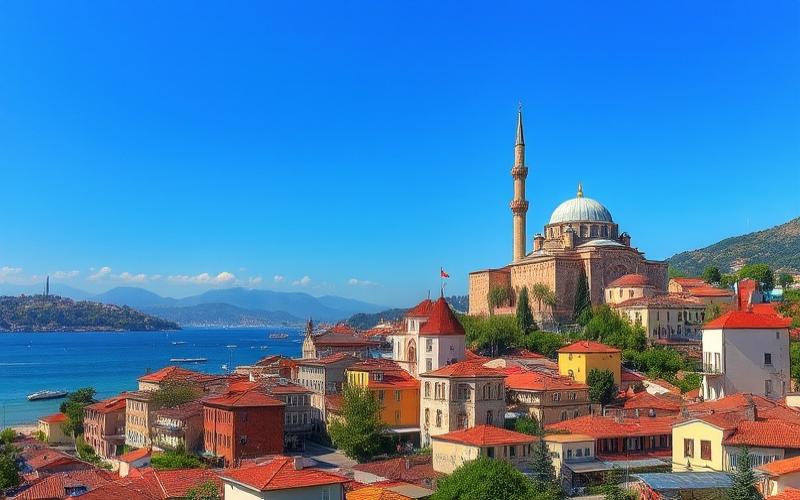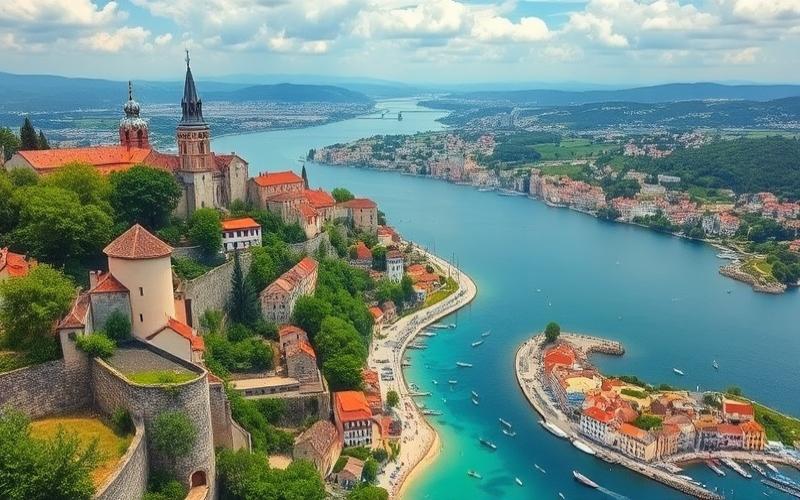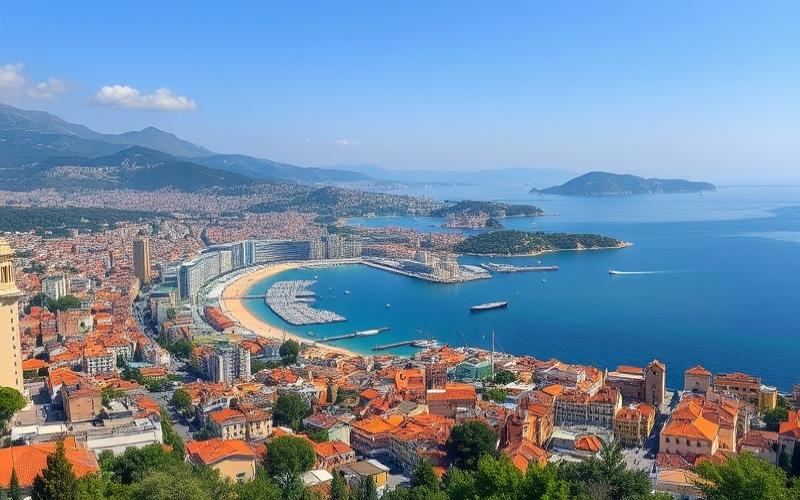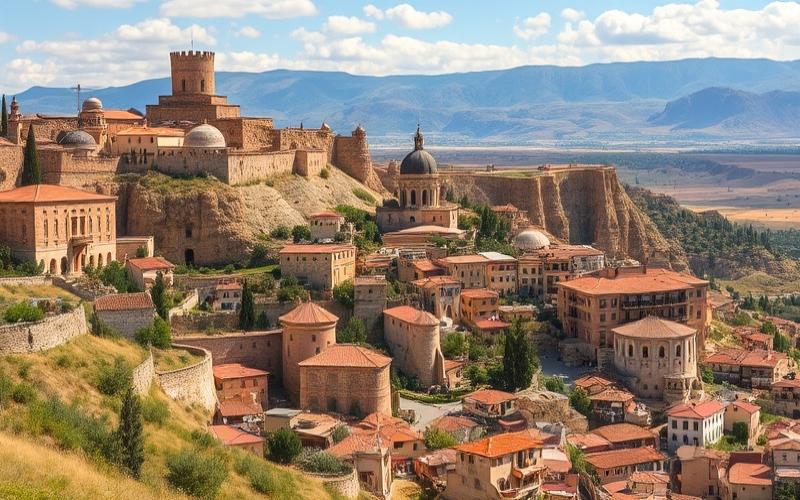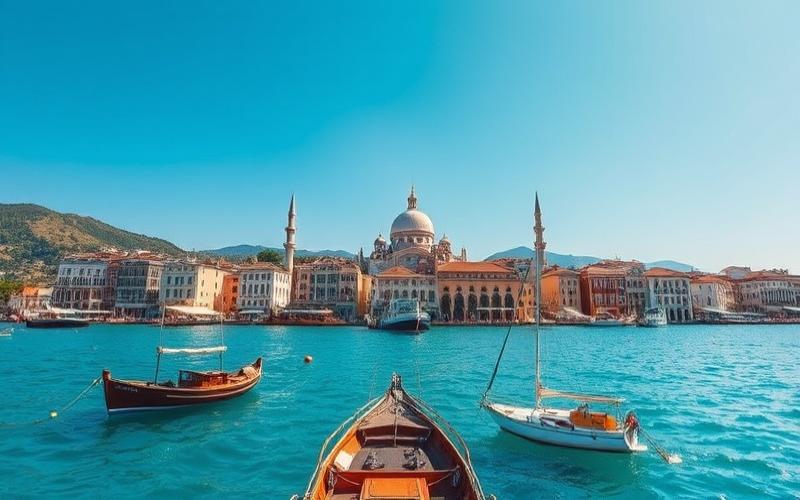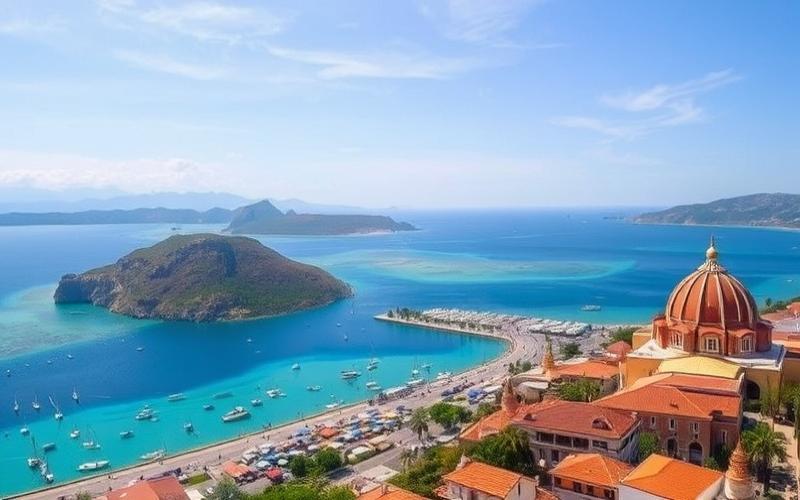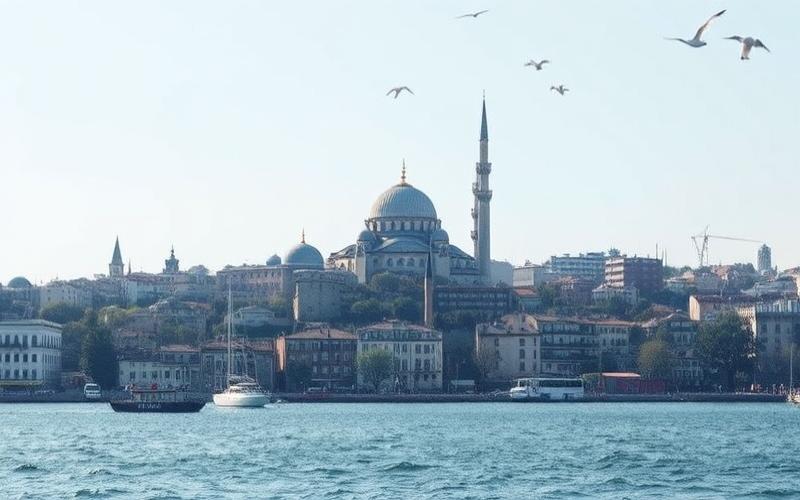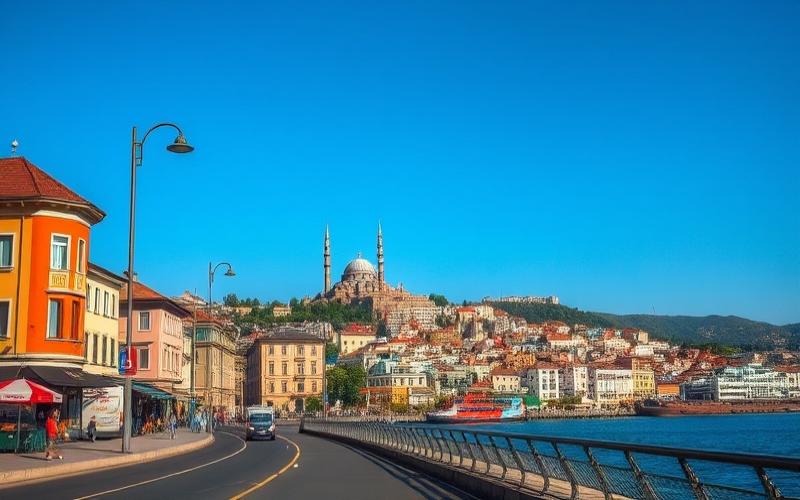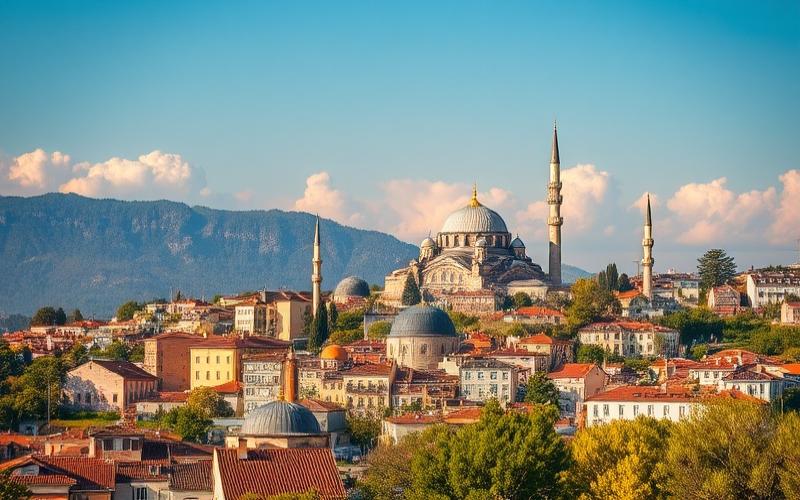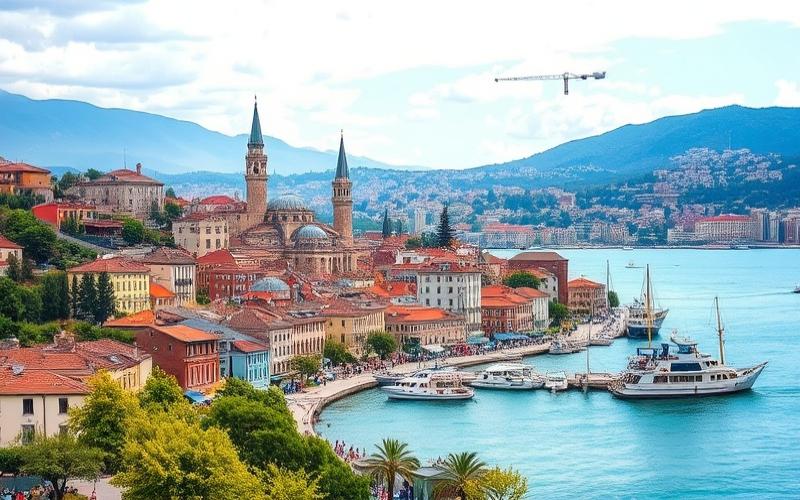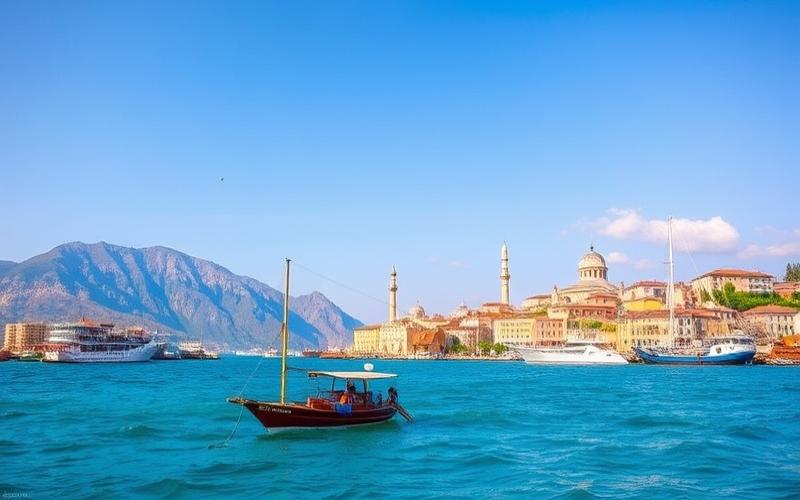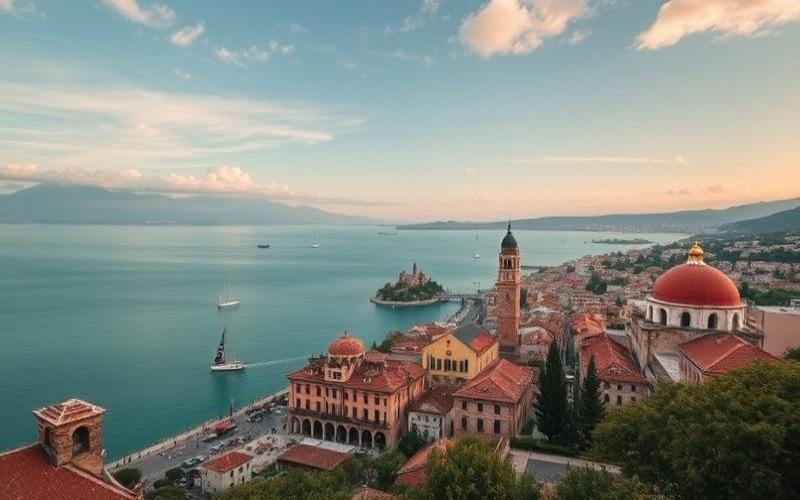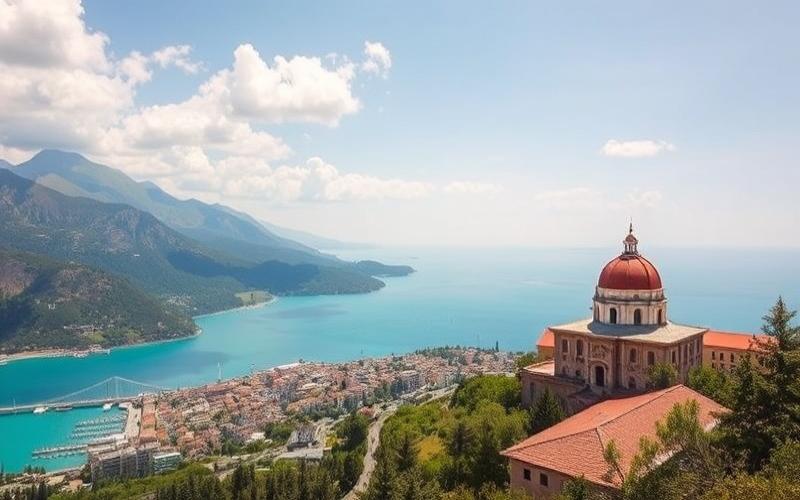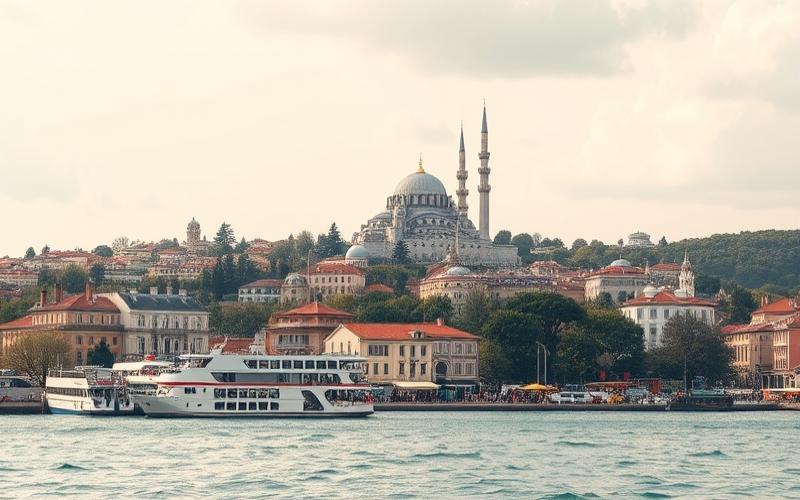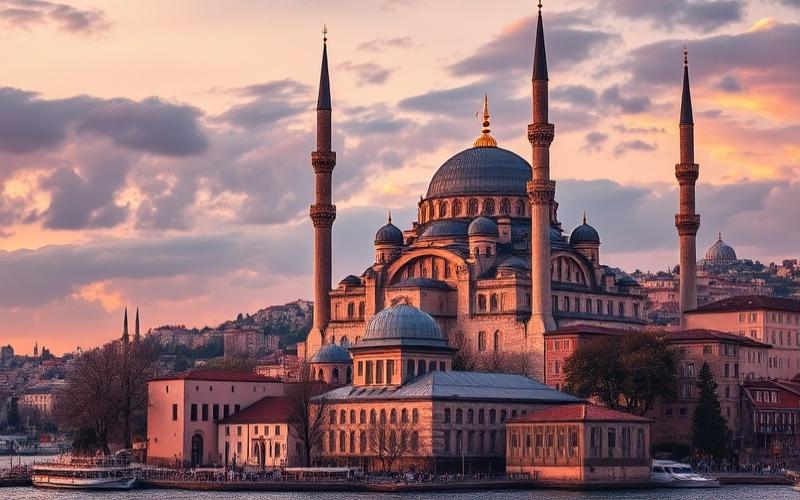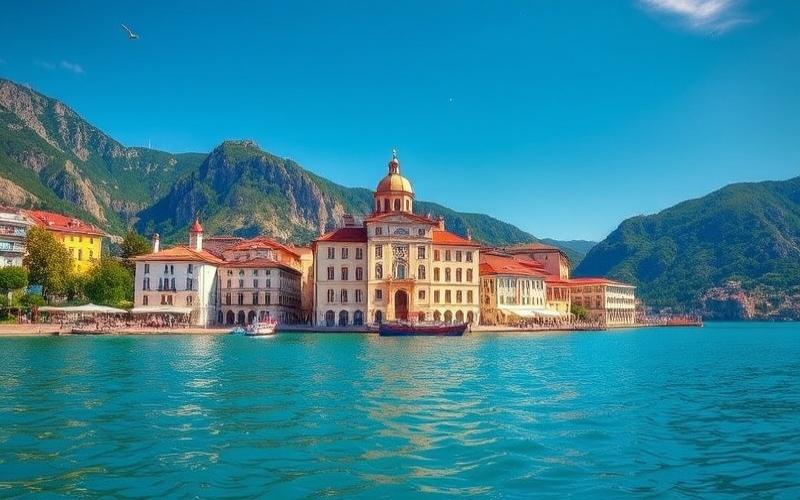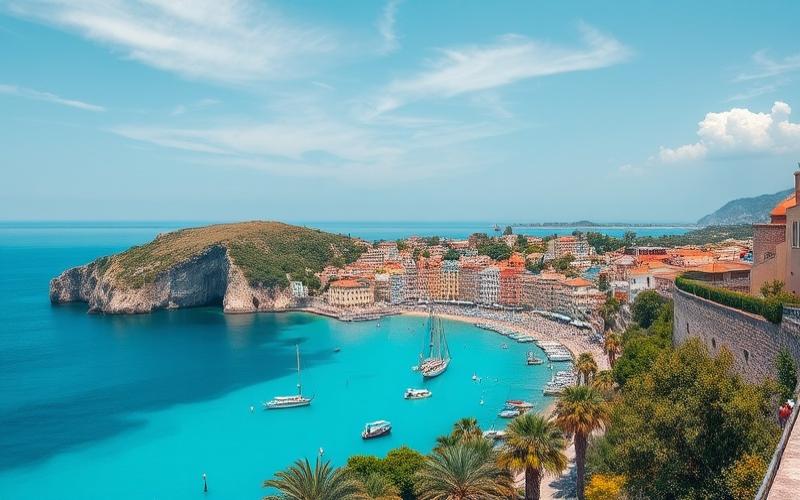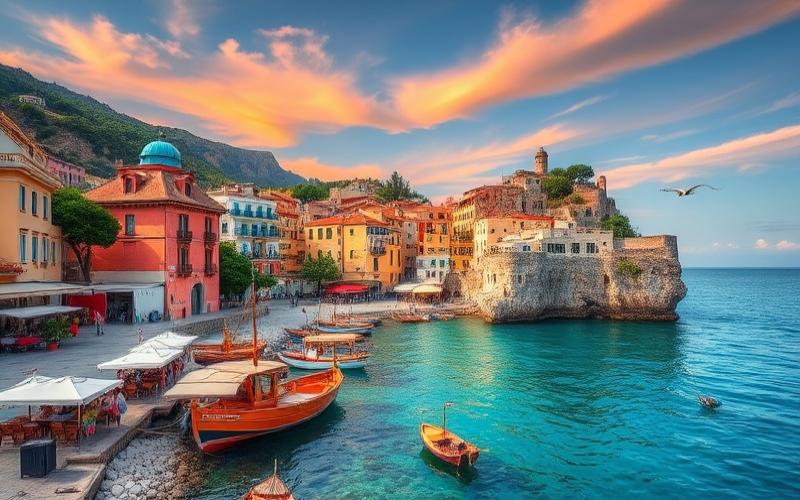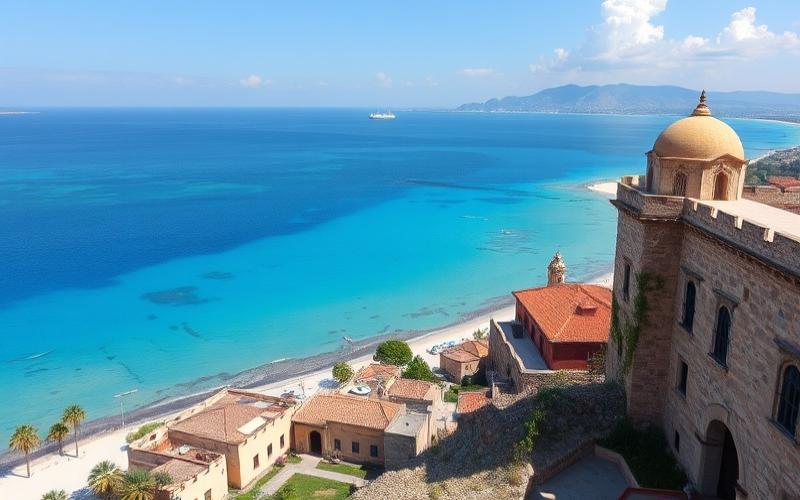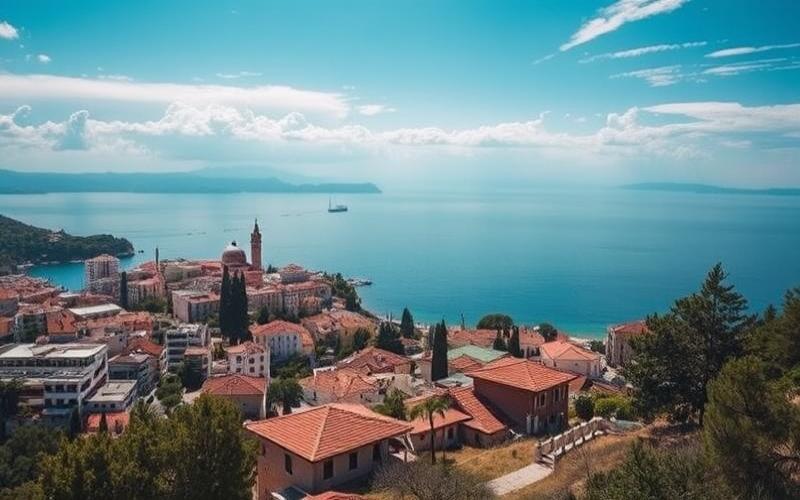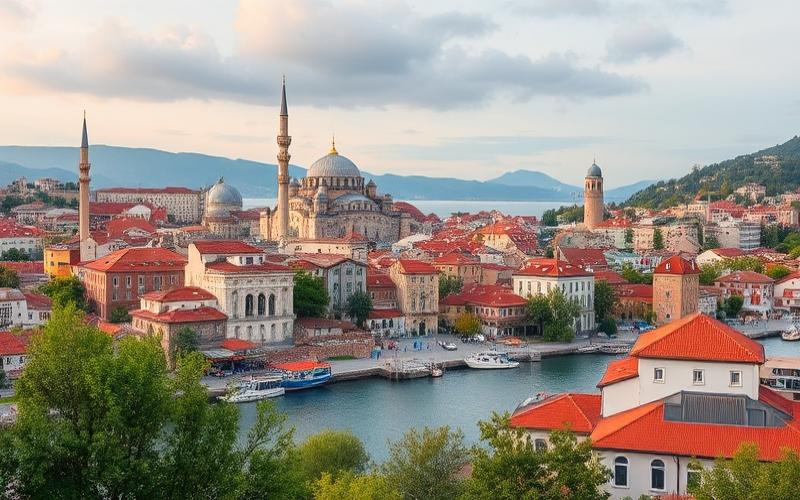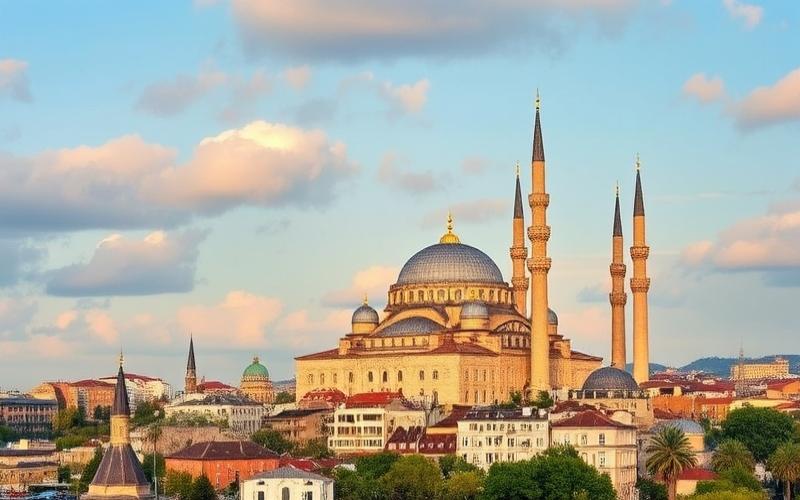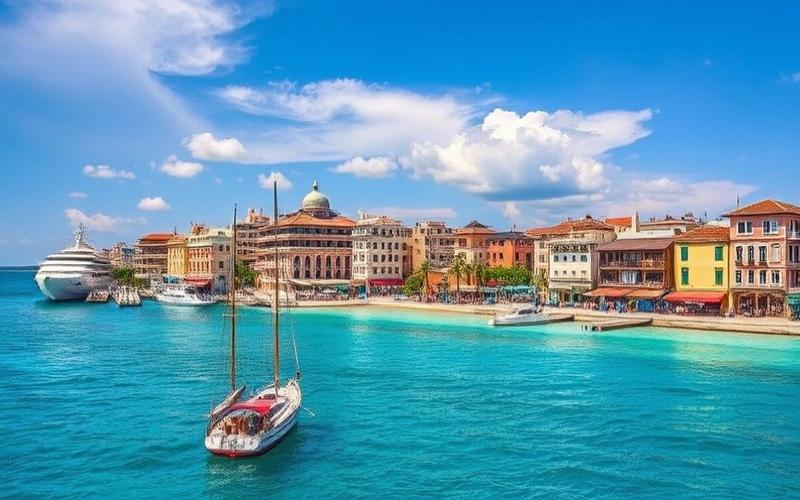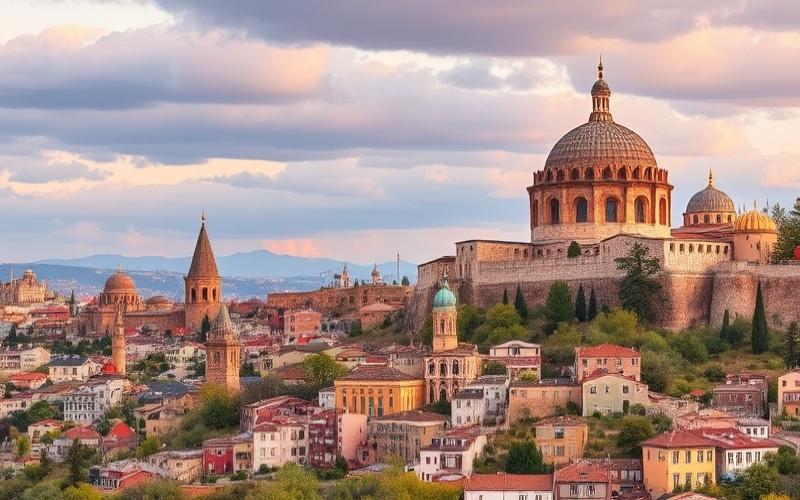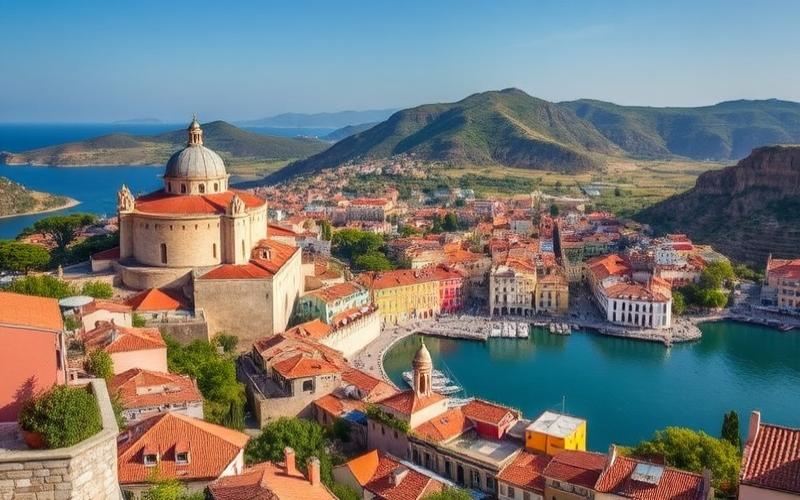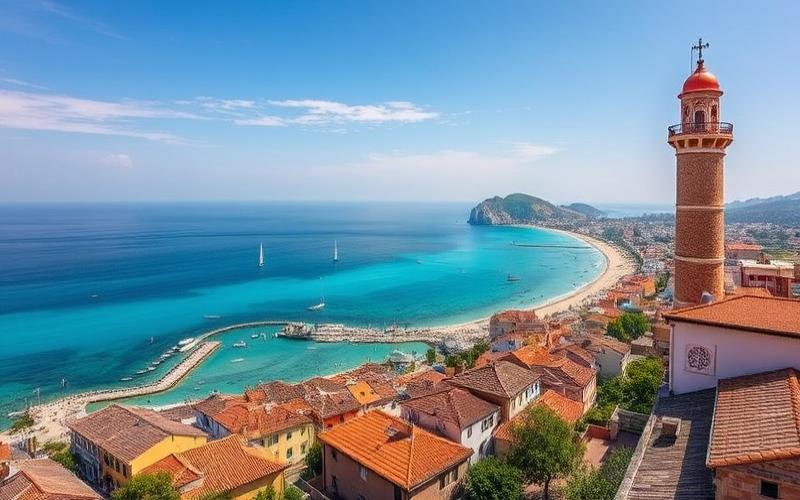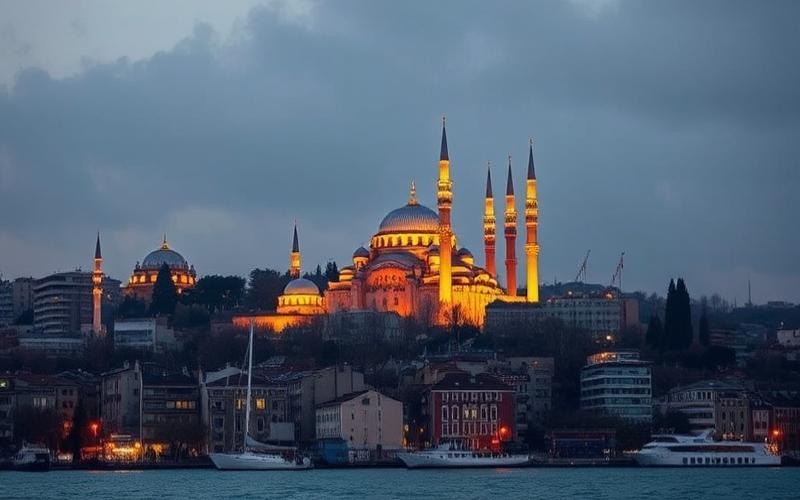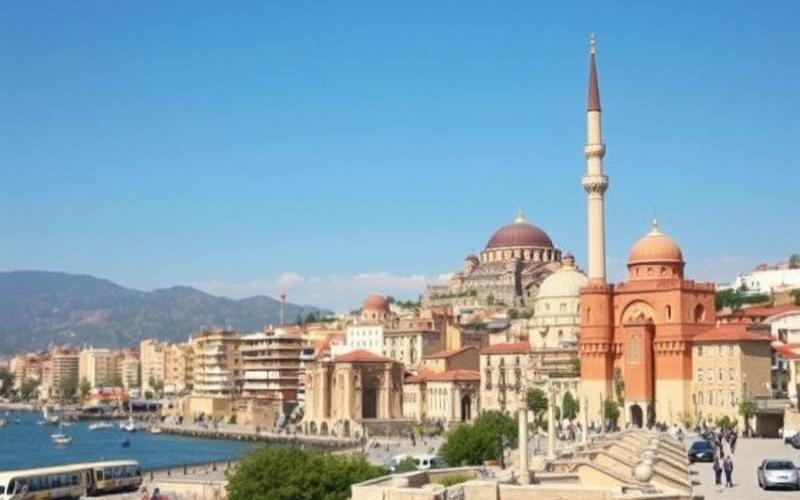
 Published on and written by Cyril Jarnias
Published on and written by Cyril Jarnias
Turkey is a fascinating cultural crossroads where East meets West, and understanding its local religious practices is essential for any expatriate wishing to truly immerse themselves in this tradition-rich country.
Whether you’re drawn to the majestic mosques of Istanbul, the famous whirling dervishes of Konya, or the Islamic holidays that punctuate daily life, this guide offers a valuable window into the unique blend of beliefs and rituals that shape Turkish society.
Embark on a journey that explores not only the visible aspects of religious life in Turkey but also the deep and unspoken meanings behind these age-old practices, thereby fostering authentic and enriching encounters with your Turkish hosts.
Impact of Religious Practices on Daily Life in Turkey
Islam is the majority religion in Turkey, practiced by approximately 99% of the population, although the proportion of practicing Muslims is lower, especially among urban youth. About one-third of society identifies as non-practicing or non-religious, and religious practice tends to be more flexible than elsewhere in the Muslim world.
Influence on Work and School Schedules:
- Work and school schedules are generally not adjusted for Friday prayers, unlike in other Muslim countries.
- During Ramadan, it is common for schedules to be adapted: some companies or government offices shorten workdays to allow employees to break their fast with family.
- Schools may organize adapted activities for fasting students, such as reducing physical exertion or adjusting break times.
- The dates of major religious holidays (Eid) are national holidays, leading to the closure of schools and government offices.
Impact on Dietary Customs:
- During Ramadan, eating, drinking, or smoking from sunrise to sunset in public places is forbidden for practitioners.
- Restaurants and cafes remain open, but some reduce their offerings during the day or install curtains to ensure discretion for non-fasting customers.
- In the evening, iftar (breaking the fast) is an important social moment, leading to large shared meals among family, neighbors, or colleagues.
- Islamic dietary restrictions (halal) are respected: pork is absent from menus, and alcohol remains taboo in some circles, although widely available in major cities.
Traditions of Major Religious Holidays:
| Holiday | Main Practices |
|---|---|
| Eid al-Fitr (Ramazan Bayramı) | Marks the end of Ramadan. Family visits, gifts for children, sharing traditional pastries (baklava, lokum). Children go door-to-door to receive treats. |
| Eid al-Adha (Kurban Bayramı) | Commemoration of Abraham’s sacrifice. Ritual sacrifice of an animal, part of which is given to the poor. Family meals, increased solidarity, visits to elders and neighbors. |
Influence on Social Interactions and Courtesy:
- Politeness formulas often include religious references (“Allah’a emanet ol” – May God protect you).
- During greetings, the hand is sometimes brought to the forehead or kissed and then placed on the forehead as a sign of respect for elders.
- Acts of charity, especially during Ramadan and holidays, are socially valued (food distribution, zakat).
Gender Separation in Public Spaces:
- In mosques, prayer areas are separated for men and women.
- Some hammams, cafes, or public transport reserve areas or times for women, especially in more conservative regions.
- Major cities offer more pronounced gender mixing, but particular attention to modesty in dress and interactions remains in many contexts.
Interaction Between Secular Laws and Religious Expression:
- Turkey is officially a secular state: religion is separate from the state, and civil law takes precedence over sharia.
- Religious symbols (headscarves, religious attire) were long restricted in public institutions, although these bans have been relaxed since the 2000s.
- The Gregorian calendar is in use, and Sunday is the official weekly day of rest.
- Public schools provide state-controlled religious education, but private denominational education also exists.
Local Perspectives and Adaptations for Expatriates:
A French expatriate in Istanbul recounts:
“I was surprised to see how daily life remains active during Ramadan, even though many colleagues fast. In the evening, iftar is a very friendly moment, and I was often invited to share the meal, which allowed me to build relationships quickly.”
A resident of Ankara testifies:
“Here, religious practice is very personal. Many women do not wear the headscarf, and there is no strong social pressure, except in some more traditional neighborhoods or cities. For a foreigner, it’s enough to be respectful during holidays and to be discreet during Ramadan.”
Expatriates note the need to adapt their schedules during religious holidays:
“Government offices close, transportation is sometimes saturated, and it’s better to plan your trips in advance. But it’s also a time when generosity and friendliness are very present.”
Living in Turkey means dealing with an omnipresent yet diverse religiosity, where Islamic traditions coexist with a secular framework and a great diversity of individual attitudes.
Good to Know:
In Turkey, where Islam is the predominant religion, religious practices widely influence daily life, notably with work and school schedules often adapted during Ramadan to allow Muslims to observe the fast. Dietary customs, marked by restrictions such as the prohibition of pork, gain importance, with shared meals often centered around “iftar,” the breaking of the fast. Religious holidays such as Eid al-Fitr and Eid al-Adha are key moments, punctuating social life with traditions like sharing sacrificial meat. Social interaction is also influenced by courtesy norms dictated by religion, such as greeting with the right hand, and it is common to encounter public spaces where gender separation is observed due to religious beliefs. Despite secularism enshrined in the country’s laws, religious expression remains visible and respected in many public places. Expatriates often relate how integration into this cultural context requires some flexibility, particularly to participate in local traditions while respecting local customs and social expectations.
Keys to Understanding Turkish Religious Holidays
Main Religious Holidays in Turkey
| Holiday | Turkish Name | Main Significance | Key Rituals and Practices | Culinary Specialties |
|---|---|---|---|---|
| Ramadan | Ramazan | Month of fasting, spirituality | Fasting from sunrise to sunset, prayers, iftar (breaking the fast), solidarity and almsgiving | Güllaç, pide, dates |
| Eid al-Fitr | Ramazan Bayramı/Şeker Bayramı | End of Ramadan, festival of sharing | Family gatherings, visits, exchange of gifts and sweets | Baklava, lokum, candies |
| Eid al-Adha | Kurban Bayramı | Festival of Abraham’s Sacrifice | Sacrifice of an animal, sharing of meat, prayers, donations to the poor | Dishes based on meat |
| Kandil | Kandil Geceleri | Five holy nights of Islam | Night prayers, illuminated mosques, distribution of kandil simidi | Kandil simidi |
Significance and Associated Rituals
Ramadan (Ramazan)
Sacred month during which Muslims fast from imsak (before dawn) to iftar (sunset). It is a period of spirituality, sharing, and discipline. Mosques host special prayers (tarawih), and many charitable events are organized. Iftar, the meal to break the fast, becomes a major social moment, shared with family, friends, or even strangers. Markets and restaurants offer specific menus, and the streets come alive at nightfall.
Eid al-Fitr (Ramazan Bayramı / Şeker Bayramı)
Celebrates the end of Ramadan over three days. Families gather, exchange gifts, visit relatives, and honor the memory of the deceased. Tradition dictates offering sweets (hence the name Şeker Bayramı, “Sugar Festival”), wearing new clothes, and showing generosity towards the less fortunate.
Eid al-Adha (Kurban Bayramı)
Festival of Sacrifice, commemorating Abraham’s submission to God. Every family that can afford it sacrifices an animal (often a sheep) according to a strict ritual. The meat is shared: one-third for the family, one-third for relatives, one-third for the needy. It is also a time of strong solidarity and conviviality, marked by visits and shared meals.
Kandil
The Kandil nights (Mevlid, Regaip, Miraç, Berat, Kadir) are marked by special prayers at the mosque, the illumination of minarets, and the distribution of ring-shaped bread, kandil simidi. These nights commemorate key events in the life of the Prophet Muhammad and hold spiritual importance, although less central than the Bayram holidays.
Impact on Daily Life
- Work and school schedules may be adapted during Ramadan.
- Restaurants may remain closed during the day but become lively in the evening.
- Transportation and public services experience peak usage before the holidays.
- Religious holidays are national holidays: government offices and businesses close partially or completely.
Specific Culinary Traditions
- Ramadan: Güllaç (dessert made with pastry leaves and milk), pide (special Ramadan bread), dates to break the fast.
- Eid al-Fitr: Baklava, lokum (Turkish delight), candies, dry cakes.
- Eid al-Adha: Dishes rich in freshly sacrificed meat, barbecue, kebab, pilaf.
National and Local Celebrations
Major cities organize public events, markets, concerts, or meal distributions.
In villages, the community dimension is even more pronounced: mutual aid, neighborhood visits, solidarity towards the poor.
Social Aspects and Diversity of Practices
Religious holidays are moments of social cohesion and openness: it is common to invite neighbors and colleagues, including non-Muslims, to share an iftar or a holiday meal.
Religious minorities can participate in the festivities in a spirit of tolerance and mutual respect, although their involvement varies by region.
Regional differences exist: Eastern Turkey is known for its strict respect of traditions, while major metropolises display a greater diversity of practices.
For Expatriates:
- It is appreciated to respect the fast in public during Ramadan.
- Receiving or offering sweets during Bayram is a courteous gesture.
- Participating in an iftar or a visit during a religious holiday is an excellent opportunity to discover Turkish culture and integrate into local life.
Key Takeaway:
Religious holidays punctuate social, family, and cultural life in Turkey, offering expatriates a unique opportunity to understand the diversity and richness of Turkish society.
Good to Know:
In Turkey, Ramazan and Bayram are key moments when daily life slows down, marked by fasting, prayer, and family sharing. Ramazan invites the daily breaking of the fast with iftar, a meal rich in traditional dishes like pide or güllaç, while Bayram, marking the end of the fast, is an opportunity to gather with family and offer gifts. Less known, the Kandil nights celebrate important Islamic events through prayers and illuminations in mosques. These holidays have a strong social aspect, promoting charity and encounters, and even non-Muslims are often invited to participate. Practices can vary by region, illustrating the country’s cultural diversity, and it is useful to inquire locally to respect customs and participate in the festivities appropriately.
Adaptations for Expatriates During Major Celebrations
The main religious celebrations in Turkey are Ramadan (Ramazan), followed by Eid al-Fitr (Şeker Bayramı or Sugar Festival) and Eid al-Adha (Kurban Bayramı or Sacrifice Festival). These holidays punctuate social, professional, and family life throughout the country.
| Holiday | Period | Impact on Daily Life | Key Practices and Traditions |
|---|---|---|---|
| Ramadan | 1 month (variable dates) | Daily rhythm modified: fasting from sunrise to sunset, adjusted hours for businesses, government offices sometimes closing earlier. | Fasting, night prayers (tarawih), increased solidarity towards the needy. |
| Eid al-Fitr | 3 days at the end of Ramadan | Closure of government offices, banks, schools; many businesses closed or with reduced hours; major family travel across the country. | Family visits, exchange of gifts/sweets (lokum, baklava), offerings to children and elderly. |
| Eid al-Adha | 4 days approx. 2 months after Ramadan | Same impact as Eid al-Fitr on public services/businesses; massive family travel. | Ritual sacrifice of an animal, part of which is distributed to the needy; family gatherings. |
Associated Practices and Traditions:
Respecting the Fast During Ramadan:
- Avoid eating/drinking/smoking in public during the day out of respect for those who are fasting.
- Iftar meals (breaking the fast at sunset) are privileged moments for invitations.
Traditions During Holidays:
- For Şeker Bayramı, greet with “Bayramınız kutlu olsun” (“Happy holiday!”).
- Symbolically offer sweets.
- For Kurban Bayramı, never politely refuse a portion offered during a sacrifice if invited to someone’s home.
- Wear decent, even elegant, attire during family visits.
Practical Tips for Expatriates:
Cultural Adaptation:
- Discreetly observe local behaviors in public spaces.
- Participate if invited to a family or festive iftar – it is often a significant sign of trust.
- Inform yourself about expected dress codes depending on the situation (avoid overly casual attire during major holidays).
- Respect quiet during special prayers in some very observant neighborhoods.
Behavior in Public Places/Family Gatherings:
- Avoid overly demonstrative gestures during these sensitive periods.
- Wait to be invited to serve yourself during collective meals.
- Bring a small gift when received at someone’s home for a holiday (classic Turkish pastries like baklava are appreciated).
Planning Using the Turkish Religious Calendar:
Dates vary each year according to the Islamic lunar calendar: plan ahead to organize vacations/business trips as transportation can be saturated before/after these major holiday periods.
Many public services/banks/schools close for several days; schedule administrative procedures outside the festive period if possible.
Understanding and respecting these events not only allows for a better life in Turkey but also helps build strong relationships with local colleagues/hosts.
Good to Know:
In Turkey, the main religious celebrations like Ramadan and Eid al-Fitr profoundly impact daily life. During Ramadan, it is common to fast from sunrise to sunset, and expatriates must show respect towards those fasting, for example by avoiding eating or drinking publicly. Eid al-Fitr, marking the end of Ramadan, is a period of joy and sharing where families gather for festive meals. It is appropriate for expatriates to join the festivities, by offering gifts or traditional sweets, such as ‘lokum’. Knowing the Turkish religious calendar helps organize work and leisure, as these celebrations come with holidays that can affect business and service hours. Participating in family gatherings requires appropriate attire and an understanding of greetings, such as ‘Bayramınız Kutlu Olsun’ (Happy Bayram). Respecting local customs and informing oneself about local religious specifics strengthens integration and shows respect for the host culture.
Religious Freedom and Resources for Expatriates in Turkey
Legal Framework of Religious Freedom in Turkey
Turkey is a secular state according to its Constitution, which prohibits any influence of religion on public affairs and forbids the adoption of religiously inspired rules. Islam has not been the state religion since 1928. Turkish secularism translates into strict state control of religious activities, thus ensuring equality among citizens regardless of their faith. However, this neutrality is sometimes accompanied by restrictions: the conspicuous wearing of certain religious clothing has been regulated in public or university spaces; political parties based on religion are prohibited; no reference to sharia is admitted in civil or penal law.
Individual rights to freedom of belief and worship are recognized but must be exercised in respect of the superior principle of secularism defined by the state. This primacy sometimes leads to limitations deemed necessary to preserve public order or prevent any political instrumentalization of religion.
Main Practiced Religions and Accessible Places of Worship
- Sunni Islam: Practiced by the majority, with a vast nationalized network of mosques managed by the Diyanet (Presidency of Religious Affairs).
- Alevi-Bektashi Islam: Minority but significant; recognized presence through cemevis (specific places for Alevi rituals), although these do not always benefit from an official status equivalent to mosques.
- Christianity (Greek Orthodox, Armenian Apostolic, Latin Catholic/Protestant): Small communities present mainly in Istanbul and Izmir; several historical churches open for worship.
- Judaism: Small but active community primarily with synagogues in Istanbul.
| Main Religion | Accessible Iconic Places |
|---|---|
| Islam | Blue Mosque (Istanbul), Süleymaniye… |
| Christianity | St. Anthony of Padua Church (Istanbul), Ecumenical Patriarchate of Constantinople |
| Judaism | Neve Shalom Synagogue (Istanbul) |
| Alevi-Bektashi | Şahkulu Sultan Dergahı Cemevi |
Expatriates can freely access the main public places of worship during regular services or during cultural visits outside liturgical hours.
Experiences Lived by Expatriates
For Sunni Muslim expatriates, practicing their faith is generally easy thanks to the high number of mosques and their open welcome. Non-Muslims may encounter more administrative obstacles to organize their worship gatherings outside officially recognized establishments. However:
- Major cities offer real diversity with Sunday masses in several languages in some churches.
- The visible wearing of Christian/Jewish insignia generally does not provoke manifest hostility but may arouse curiosity or misunderstanding outside cosmopolitan areas.
- Some testimonies mention a necessary cultural adaptation regarding schedules/holidays not aligned with those of Western countries.
Socially, there is relative tolerance towards urban religious pluralism, although some minorities still occasionally report indirect discrimination related notably to housing or public employment.
Resources Available for Expatriates Wishing to Practice Their Religion
Indicative list:
- International Christian associations active locally: International Francophone Christian Alliance Turkey; foreign Francophone/Anglophone parishes offering catechism/social address.
- Jewish groups structured around the Turkish Chief Rabbinate offering community support to newcomers.
- Interfaith platforms: ecumenical university groups/NGOs promoting interfaith dialogue and practical multilingual assistance.
Social Network & Mutual Aid:
- Internet forums dedicated to expatriates
- Facebook pages/WhatsApp groups “French/Iberians/Catholics/Iglesia Catolica Estambul”
- Specific welcome by some embassies during major holidays
Open Events:
- Major liturgical holidays celebrated publicly in some historic neighborhoods
- European Heritage Days allowing exceptional guided visits to synagogues/churches usually closed
- Sufi/Alevi festivals accessible without denominational distinction
To live one’s spirituality serenely in Turkey as an expatriate: prefer Istanbul, Izmir, or Ankara where various organized faiths coexist; contact recognized religious associations directly to know the precise schedule of services adapted linguistically; respect local customs regarding limited proselytism in public space to avoid any potential cultural misunderstanding.
Good to Know:
In Turkey, religious freedom is guaranteed by the Constitution, allowing expatriates to practice their faith, although Sunni Islam largely predominates. Followers of other religions, such as Christianity and Judaism, can find churches and synagogues in cities like Istanbul and Izmir. Laws, however, prohibit proselytism considered a sensitive activity. Expatriate experiences vary, some feeling a benevolent inclusion while others may face subtle cultural challenges. Expatriate communities often offer support groups like the St. Anthony of Padua Church Cultural Center in Istanbul, and participate in interfaith events that encourage mutual understanding. Expatriates can also attend local cultural festivals to enrich their experience, such as the Eid festival or cultural celebrations in cosmopolitan neighborhoods.
Disclaimer: The information provided on this website is for informational purposes only and does not constitute financial, legal, or professional advice. We encourage you to consult qualified experts before making any investment, real estate, or expatriation decisions. Although we strive to maintain up-to-date and accurate information, we do not guarantee the completeness, accuracy, or timeliness of the proposed content. As investment and expatriation involve risks, we disclaim any liability for potential losses or damages arising from the use of this site. Your use of this site confirms your acceptance of these terms and your understanding of the associated risks.


